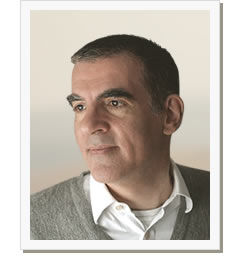About Michael
 I was born in Cheshire and educated at Rydal School, a small public school in North Wales with a rich tradition of choral music, which I loved, and rugby, which I loathed as a contemporary aptly remarked: ‘I’m not sure what the spirit of Rydal is, except that it’s oval.’
I was born in Cheshire and educated at Rydal School, a small public school in North Wales with a rich tradition of choral music, which I loved, and rugby, which I loathed as a contemporary aptly remarked: ‘I’m not sure what the spirit of Rydal is, except that it’s oval.’
I read English at Jesus College, Cambridge, my choice of college dictated largely by the prospect of being taught by the celebrated critic, Raymond Williams. Williams however, although officially my director of studies, had by then grown so disillusioned with teaching that I met him only twice during my university career.
I in turn grew disillusioned with my course and devoted all my time to extracurricular activities, writing for the student newspapers, Varsity and Broadsheet, and directing at the student-run ADC theatre. Among the plays I directed were Peer Gynt, The Duchess of Malfi, The Taming of the Shrew, The Merry Wives of Windsor and Edward Bond’s The Sea. I also took a production of The Tempest on a European tour. Despite my neglect of my studies, I learnt a lot and would endorse the comment of the narrator-figure in my novel Unity that the purpose of a university education is ‘the pursuit of knowledge in the company of friends’.
On leaving university, I worked at a small fringe theatre, the Little Theatre in St Martin’s lane (now the home of Stringfellows’ nightclub), where I directed several productions, including my own adaptation of the Victorian melodrama, The Factory Lad. Soon afterwards, I was struck by a depressive illness which cast a pall over my early twenties. On recovering, I resolved to devote myself to writing plays.
My first play, The Volunteer, loosely based on my experience as a Community Service Volunteer in a Boys Assessment Centre, was produced by the National Youth Theatre at the Shaw in 1980, and my second, The Freshman, about a group of Cambridge undergraduates, by the National Student Theatre Company at the Edinburgh Festival in 1984. I had several plays workshopped at the Orange Tree Theatre, Richmond and, one, The Ceremony of Innocence, given a semi-staged performance at the Liverpool Playhouse in 1989.
Between 1985 and 1991, I had four plays broadcast on Radio Four, Something To Scare Off The Birds, The Morning Room, The Chatelaine and The Family Hotel. Although I soon became intrigued by the possibilities of the medium, I never reconciled myself to the speed of radio production which, despite the excellence of the director and casts, gave me little scope to develop as a writer.
Meanwhile, a friend had become arts editor of the Evening Standard and invited me to write occasional theatre reviews. I soon found myself as the paper’s deputy drama critic and, without its ever having been my intention, embarked on a career in arts journalism. In addition to five years at the Standard, I wrote theatre criticism for The Times, Sunday Times, Daily Mail and Sunday Express and features for a host of broadsheet papers on subjects as diverse as Sir John Gielgud and the Chippendales. From December 2013 to November 2020, I returned to theatre criticism, once again for the Sunday Express.
From 1991 to 2012, I contributed book reviews to many national papers. Since giving up theatre criticism, I have returned to book reviewing, primarily for the Financial Times and the Spectator.
My first novel, The Celibate, was published in 1993 and, soon afterwards, I gave up regular theatre reviewing to concentrate on my fiction. Pagan and her Parents followed in 1996. It was shortlisted for the Lambda award in America where it was retitled Pagan’s Father (prompting several enquiries as to when I would be bringing out the next novel in the Pagan series). My third novel, Easter, appeared in 2000, winning the first Waterstone’s Mardi Gras award. My fourth novel, Unity, appeared in 2005 and was shortlisted for the Wingate Jewish Quarterly award. My fifth novel, A Sea Change, appeared in 2006. My sixth novel, The Enemy of the Good, appeared in 2009 and was longlisted for Le Prince Maurice Prize. My seventh novel, Jubilate, appeared in February 2011 and was shortlisted for the Epic Romantic Novel of the Year. My eighth, The Breath of Night, appeared in July 2013 and my ninth, Widows and Orphans, in February 2015. My tenth novel, Of Men and Angels, was published in March 2018. My eleventh novel, The Anointed, was published in March 2020, my twelfth, The Young Pretender, in April 2022, and my thirteenth, The Choice, in June 2023. My short stories have been published in various magazines and anthologies, and my first collection, Good Clean Fun, came out in 2004.
I have contributed articles for the Dictionary of National Biography and was for three years a judge of the Somerset Maugham award. I was a Harold Hyam Wingate Scholar in 2000, a Royal Literary Fund Fellow in 2001, a Hawthornden Fellow in 2005, and the Leverhulme artist in residence at the Freud museum in 2008. I won an Oppenheim-John Downes Memorial Award in 2003 and Arts Council Awards in 2004 and 2007. I have lectured on Swan Hellenic cruises around the world. One of my greatest privileges and hardest tasks to date was to give the 1997 World AIDS Day address in St Martin in the Fields, which led to requests for me to give other such addresses in churches both at home and abroad.
I was awarded an Honorary DLitt by the University of Chester in March 2013, appointed a Visiting Professor at King’s College, London, in February 2018, and elected as a Fellow of the Royal Society of Literature in July 2022.